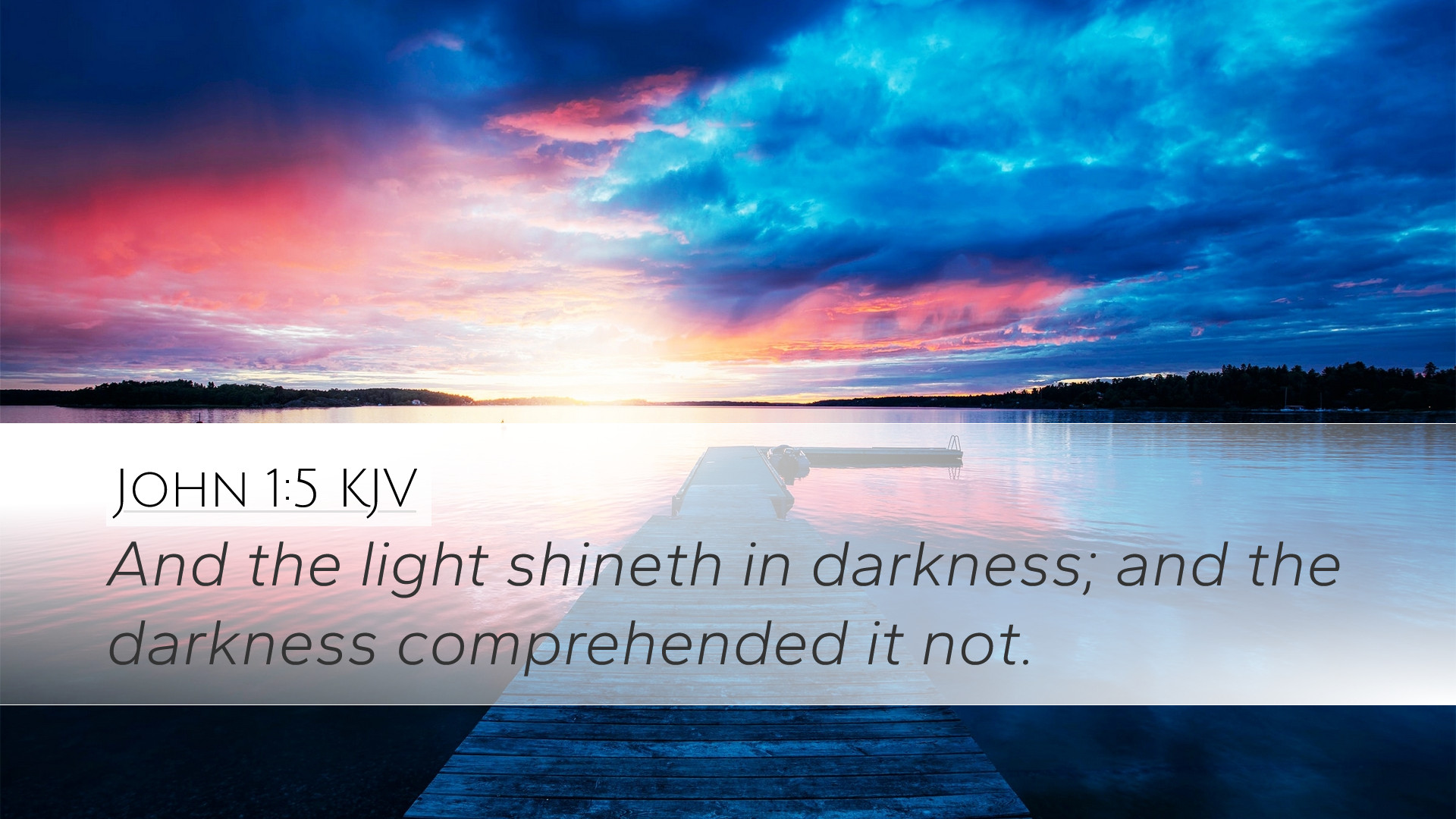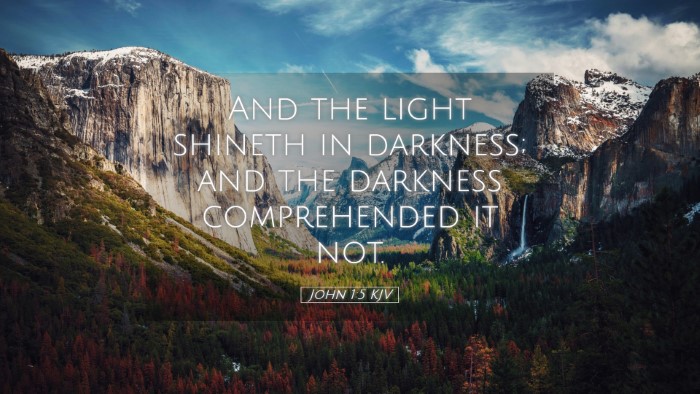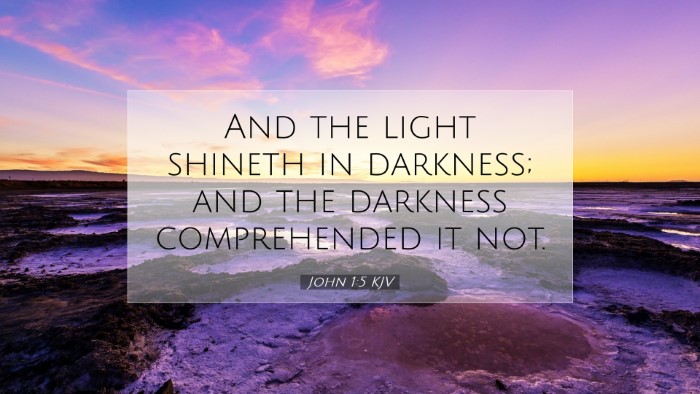Commentary on John 1:5
Verse: “And the light shines in the darkness, and the darkness has not overcome it.”
(John 1:5 ESV)
Introduction to the Verse
The prologue to the Gospel of John (John 1:1-18) establishes profound theological principles about Christ, specifically His nature as the Word and the Light. Verse 5 serves as a pivotal statement that encapsulates the ongoing conflict between light and darkness, which symbolizes the struggle between good and evil, spiritual enlightenment versus ignorance, and belief in Christ versus unbelief.
Exegesis
The phrase “the light shines” denotes an active presence and continual action, indicating that the impact of Christ's light is not stagnant but rather pervasive and dynamic. The “darkness” represents not just sin but also the spiritual blindness of humanity. The statement that “the darkness has not overcome it” not only affirms Christ's victory but also serves as a comfort to believers.
Insights from Public Domain Commentaries
Matthew Henry
Matthew Henry emphasizes the existential battle between light and darkness, suggesting that while darkness may seem expansive, it cannot extinguish the light of Christ. He notes that this verse highlights the resilience and triumph of divine illumination in a world often overshadowed by sin and spiritual blindness. Henry views Christ as the vital source of enlightenment that is immune to the attempts of darkness to extinguish it.
Albert Barnes
Albert Barnes offers a practical reflection, asserting that the light represents Christ as both a teacher and a savior. He explains that the continuation of this illumination implies that it is available to all who seek it, regardless of the degree of darkness that pervades their lives. Barnes points out the importance of recognizing that darkness cannot understand or conquer this light, approaching the theological implications of divine revelation and the human response to it.
Adam Clarke
Adam Clarke provides an analytical approach, exploring the Greek terms used within the verse. He explains that "overcome" can be interpreted as both comprehending and conquering. Clarke indicates that while the dark powers strive to trust in their own strength, they are ultimately ineffectual against the brilliance of Christ. His commentary highlights both the eschatological and immediate implications of the light in believers’ lives, emphasizing hope and assurance.
Theological Implications
-
Victory of Light: The assertion that darkness cannot overcome light affirms the sovereignty of Christ over sin, error, and spiritual opposition. This signifies that ultimate defeat of evil is guaranteed.
-
Role of Believers: As recipients of the light, believers are called to reflect and spread this illumination in a darkened world. Thus, the verse serves as both encouragement and mandate for evangelism and discipleship.
-
An Enduring Comfort: This message provides profound comfort to Christians facing persecution or despair, reminding them that even in the darkest times, Christ's light prevails.
Practical Application
Pastors and leaders can utilize this verse as a foundation for teachings on hope, resilience, and the power of faith in Christ. By understanding the persistent nature of Christ’s light, congregations can be encouraged to carry forth this light into their communities, combating the pervasive presence of darkness through active faith and love.
Students and scholars may find this verse an intriguing subject for deeper study, reflecting on the implications of light and darkness within the Johannine context and its relevance to contemporary spiritual warfare.


